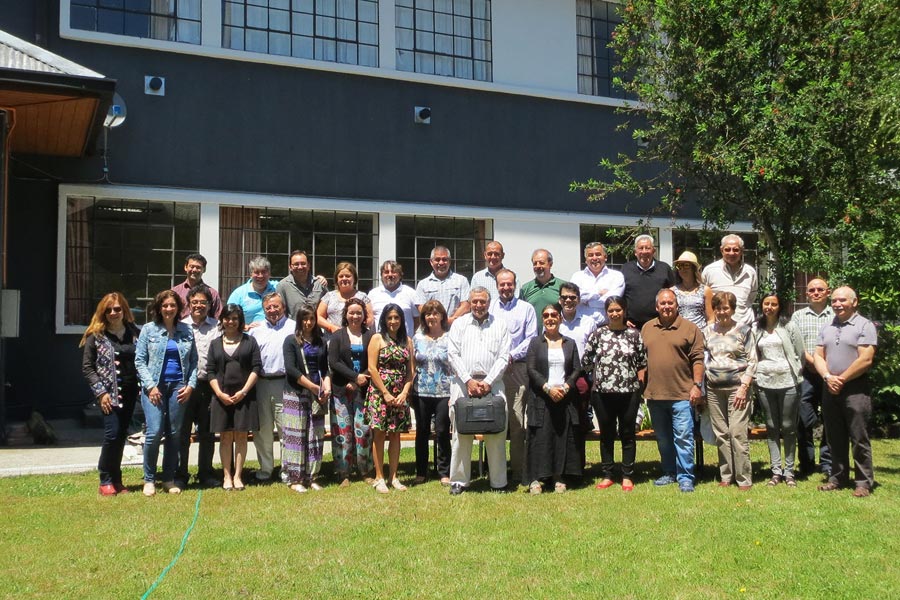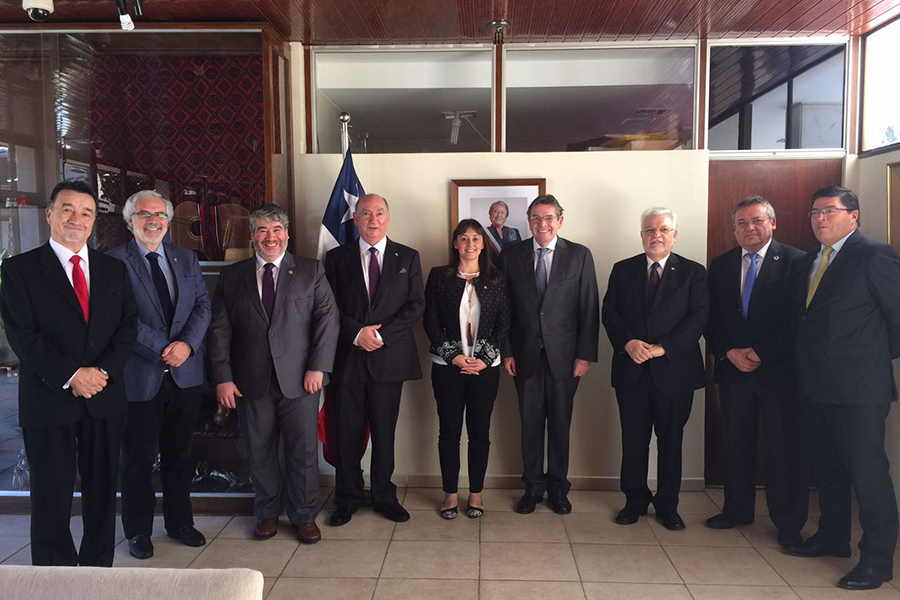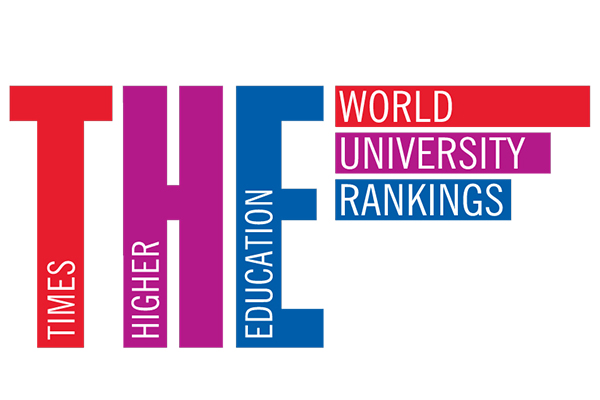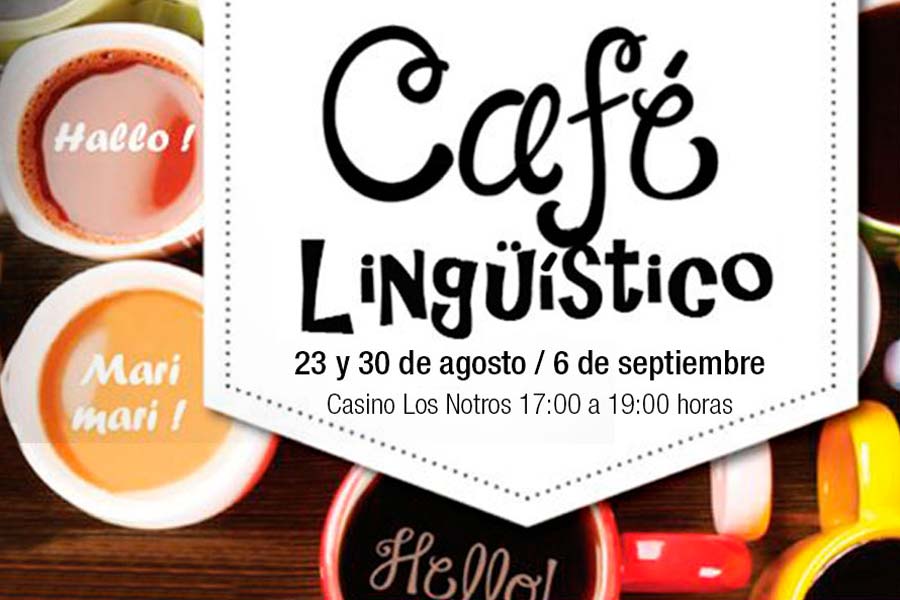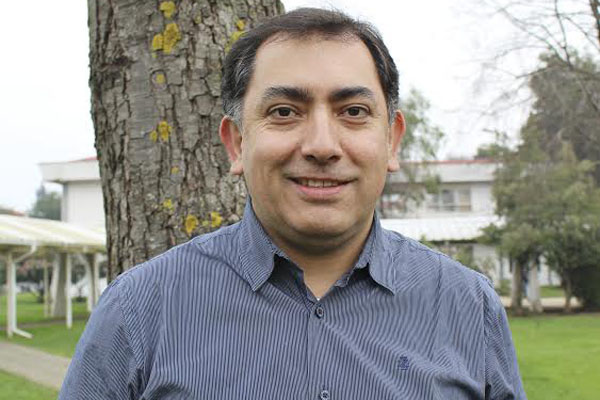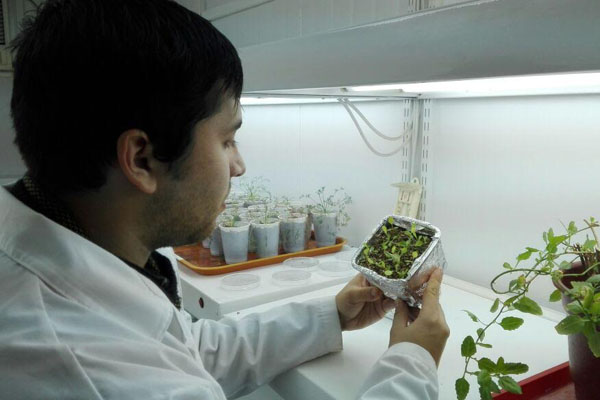|
The Network for Extreme Environment Research (NEXER) already has its first projects awarded, which makes the cooperation between researchers of the Universidad de La Frontera, the Universidad de Magallanes and the Universidad de Antofagasta official. |
AIMS OF NEXER
NEXER PROJECTS 2017
AREAS OF INTEREST OF THE MAIN RESEARCHERS OF THE NETWORK
Written by: Lorena Espinoza Arévalo |
|
The delegation of the UFRO stayed in Brazil until August 22nd. They fulfilled a busy agenda of activities which reflects partnerships of excellence and collaborative work beyond the borders. |
The relationship between the Universidad de La Frontera and prestigious Brazilian institutionshas been very productive over the years, as a result of the actions taken in order to foster internationalization. At this moment, the UFRO has a series of agreements with Brazilian institutions and the positive experiences in research and postgraduate programs contributed to the consolidation of networks and established trust for cooperation.
Written by: Jassna Sepúlveda Beltrán |
|
UFRO maintains leadership and shows results of excellence in the areas of teaching, research, knowledge transfer and international outlook. |
Once again, the Universidad de La Frontera (UFRO) occupies an important position in the report published by the Times Higher Education Latin America University Rankings 2017. In the international register, the UFRO – a public, state and regional university – achieved to stay within a privileged place in Latin America and in Chile. The Rector Sergio Bravo pointed out: "To be the best state University of the regions and to rank among the best 10 in Chile and among the top 35 in Latin America, this is a result that reflects the excellence with which the entire UFRO community is developing the work during years, achieving a prestigious and consolidated position in national and international quality measurements.” He added, that this position also "values the institutional trajectory and the efforts that have been invested as a state and regional University which is committed to quality, especially when we included our indispensable commitment to excellence and precision in our work.” PRESTIGE AND QUALITY In this version, the Times Higher Education rated 81 universities in Latin America, using the same criteria as the World University Rankings, but with special modifications to better reflect the qualities of Latin America´s institutions. This way, 13 separate performance indicators of the main tasks – teaching, research, knowledge transfer and international outlook – are used to evaluate the world-class educational institutions. The director of Academic Quality, Dr. Martha Ramírez, pointed out that "the international recognition of the THE to our Institution, for the second consecutive year, is a confirmation of the quality of our processes and results, and also allows us to know how we are doing at the national and international level in the dimensions analyzed and to identify opportunities for improvement.” "This ranking is one of the most prestigious, nationally and internationally, because it expresses the levels of complexity of university institutions. The position we achieved this year, is the result of an institutional development policy that focuses on complexity and quality as the guiding principles of the tasks and that, incidentally, are the most valued aspects by the entities which we are linked to as UFRO – such as Conicyt – in order to generate new projects, and that use this prestigious ranking as one of the conditions of eligibility to apply for a Becas-Chile Scholarship for postgraduate studies at the best universities in the world”, stressed the director of Analysis and Institutional Development, Dr. Ricardo Herrera. The Director of International Affairs, Dr. Pamela Leal, highlights another aspect: "For the objective of internationalization of our University, to rank as one of the best State and Region Universities of Chile in this important ranking is a result that opens us more and new doors and benefits the entire UFRO Community in Chile and abroad". Even though, this position continues to give prestige to the UFRO in the national and Latin American scenario and as a leader in the Araucanía Region, the Rector, Sergio Bravo, emphasized that this achievement also implies an even bigger motivation to advance in the challenges of the institution: "This ranking confirms that we are on the right track, but also encourages us with regard to the goals that we have set ourselves, and that involves the work of the entire University Community."  Written by: Direction of Communications Written by: Direction of Communications |
|
Student Development Office launches Linguistic Café to promote cultural encounters and the use of four different languages |
The main objective of this innovative initiative,launched by the Student Development Office, is to promote and improve the use of different languages in open conversations.
Written by: Sergio Valenzuela |
|
Dr. César Arriagada Escamilla of the Department of Forestry Science at the Faculty of Agricultural and Forestry Science has been studying the contamination of soils by heavy metals for almost 20 years. |
In a new research, carried out thanks to a Fondecyt Regular Project, Dr. Arriagada seeks to analyze the transcriptome of plants, which are tolerant to heavy metal contamination and which, as a result of climate change (drought), are facing adverse conditions. The objective is to understand the functioning of the genes that are expressed under these conditions of contamination and water deficits, opening a number of research horizons.
 Written by: Lorena Espinoza Written by: Lorena EspinozaVice-Rectorate of Research and Postgraduate Programs |






